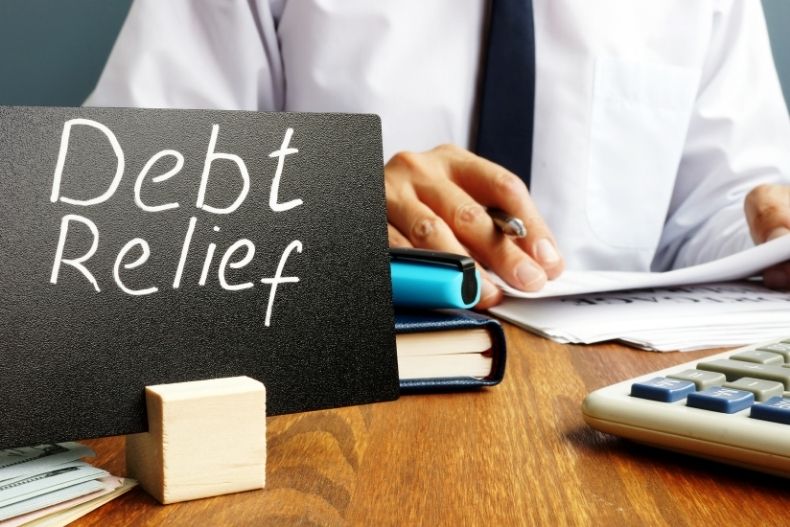 In recent years, Florida has emerged as a focal point for concerning trends in consumer debt, particularly in the realm of credit card usage. A closer examination reveals that many residents are grappling with significant levels of debt owed to credit card companies, raising alarms about financial stability and economic resilience. This investigation delves into the factors contributing to Florida’s alarming levels of credit card debt, the impact on individuals and communities like Fort Lauderdale, and actionable strategies for addressing this pressing issue.
In recent years, Florida has emerged as a focal point for concerning trends in consumer debt, particularly in the realm of credit card usage. A closer examination reveals that many residents are grappling with significant levels of debt owed to credit card companies, raising alarms about financial stability and economic resilience. This investigation delves into the factors contributing to Florida’s alarming levels of credit card debt, the impact on individuals and communities like Fort Lauderdale, and actionable strategies for addressing this pressing issue.
Understanding the Scope of the Issue
Florida’s alarming levels of credit card debt can be attributed to several key factors:
- Economic Vulnerability: Despite being a vibrant state with a robust tourism industry and diverse economic sectors, many Floridians face economic vulnerabilities. This includes fluctuations in income due to seasonal employment patterns, reliance on low-wage jobs in certain industries, and the impact of economic downturns.
- High Cost of Living: Certain regions within Florida, such as major metropolitan areas and coastal communities, experience a high cost of living. This can pressure residents into using credit cards to cover basic expenses when incomes do not suffice.
- Financial Literacy Gaps: Many residents lack sufficient financial education, leading to poor financial management practices and an over-reliance on credit cards as a means of managing day-to-day expenses.
- Natural Disasters and Emergencies: Florida’s vulnerability to hurricanes and natural disasters can result in unexpected expenses and income disruptions. In such situations, individuals may turn to credit cards to cope with recovery costs.
- Debt Accumulation: Continuous use of credit cards without a clear repayment strategy can lead to a cycle of debt accumulation, where high-interest rates and fees exacerbate financial burdens over time.
Impact on Individuals and Communities
The impact of high levels of credit card debt extends beyond individual households to affect communities and the broader economy:
- Financial Stress: Accumulating credit card debt can cause significant stress and anxiety for individuals and families, impacting mental health and overall well-being.
- Economic Drag: High levels of consumer debt can constrain household spending, which in turn affects local businesses and economic growth within communities.
- Credit Score and Borrowing Costs: Maintaining high levels of debt can damage credit scores, making it more difficult and expensive for individuals to access future credit, such as mortgages or car loans.
- Legal and Collection Issues: Defaulting on credit card debt can lead to legal action, wage garnishment, and harassment from debt collectors, further exacerbating financial distress.
Investigative Findings and Statistics
Recent investigations into credit card debt in Florida have uncovered compelling statistics that underscore the severity of the issue:
- According to data from the Federal Reserve, the average credit card debt per borrower in Florida exceeds the national average, indicating a widespread issue of debt burden among residents.
- Studies by financial institutions and consumer advocacy groups reveal that a significant percentage of Floridians carry credit card balances from month to month, paying substantial amounts in interest and fees.
- Reports from credit reporting agencies highlight that many individuals in Florida have high credit utilization rates, which can negatively impact credit scores and increase borrowing costs.
Addressing the Crisis: Strategies for Individuals
For individuals struggling with credit card debt in Florida, there are several proactive strategies to consider:
- Create a Budget: Establish a budget that prioritizes essential expenses and allocates a portion of income towards paying down credit card debt each month.
- Prioritize High-Interest Debts: Focus on paying off credit card balances with the highest interest rates first to reduce overall debt more effectively.
- Explore Debt Consolidation: Consider consolidating multiple credit card debts into a single loan with a lower interest rate to streamline payments and save on interest charges.
- Seek Financial Counseling: Non-profit credit counseling agencies offer free or low-cost counseling services to help individuals develop personalized debt repayment plans and improve financial literacy.
- Negotiate with Creditors: Contact creditors to negotiate lower interest rates, extended payment plans, or settlement options that align with your financial circumstances.
- Avoid New Debt: Resist the temptation to accumulate new debt by limiting credit card usage and focusing on living within your means.
- Build an Emergency Fund: Save for unexpected expenses to reduce the reliance on credit cards during emergencies and unforeseen financial setbacks.
- Monitor Credit Reports: Regularly review credit reports for accuracy and monitor credit scores to track progress and identify areas for improvement.
Community and Policy Initiatives
Beyond individual actions, community-based and policy initiatives can play a crucial role in addressing Florida’s credit card debt crisis:
- Financial Education Programs: Implementing comprehensive financial literacy programs in schools and community centers can equip residents with essential money management skills.
- Consumer Protection Measures: Enacting and enforcing consumer protection laws that regulate credit card practices, debt collection, and interest rates can safeguard consumers from predatory lending practices.
- Support for Economic Resilience: Investing in job training programs, affordable housing initiatives, and economic development projects can strengthen household financial stability and reduce reliance on credit.
Florida’s alarming levels of credit card debt highlight a pressing issue that affects individuals, families, and communities statewide. By understanding the underlying factors, acknowledging the impact on financial well-being, and adopting proactive strategies, Floridians can work towards reducing debt burdens and achieving greater financial security.
Addressing the credit card debt crisis requires a multifaceted approach that includes personal financial management, community support, and policy interventions aimed at promoting economic resilience and consumer protection. Through concerted efforts and informed decision-making, individuals and stakeholders can collaborate to mitigate the adverse effects of credit card debt and foster a more financially secure future for all Floridians.

